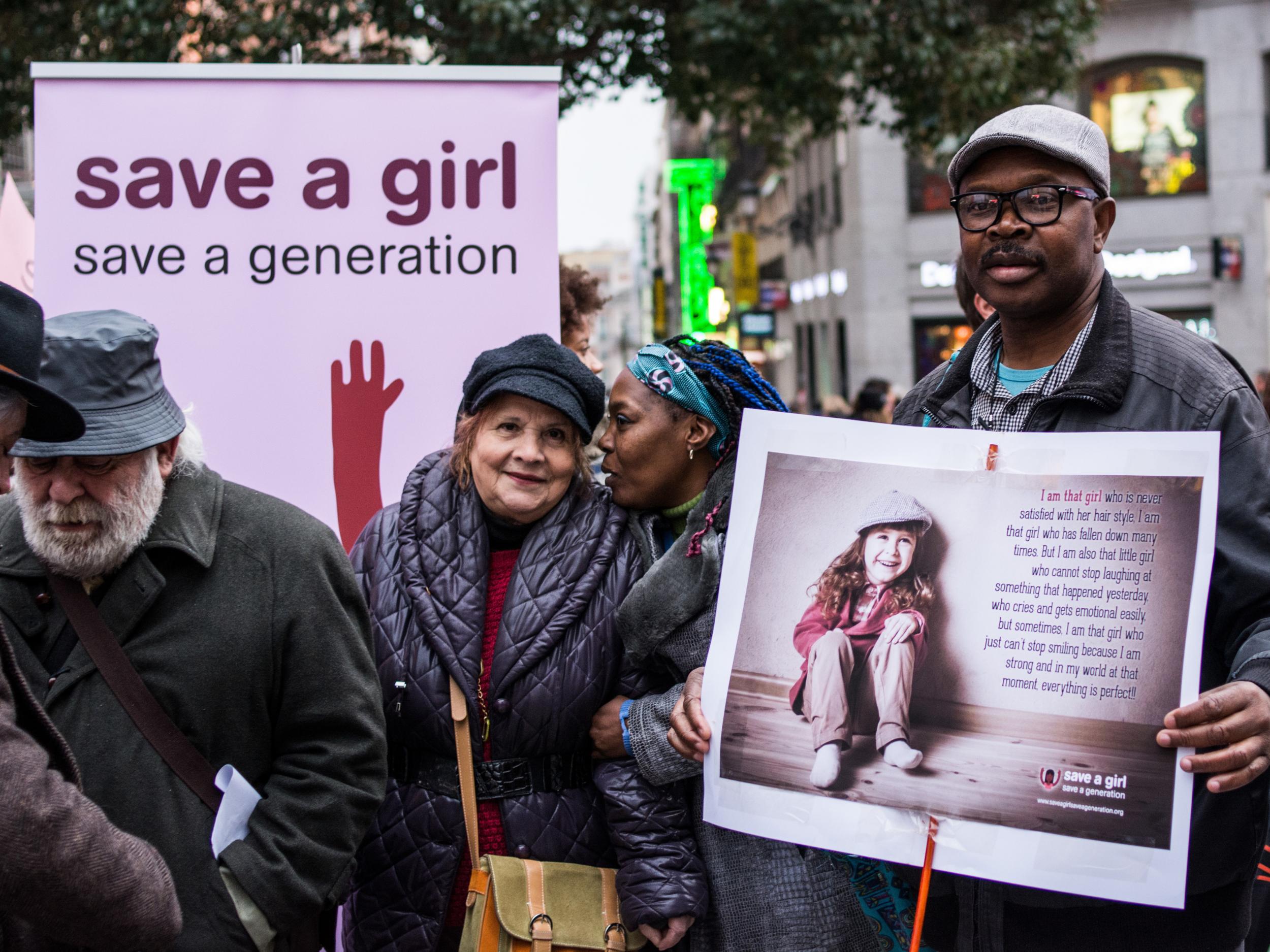NHS launches FGM clinics across England to support survivors
‘These are clinics for women, run by women’

Your support helps us to tell the story
From reproductive rights to climate change to Big Tech, The Independent is on the ground when the story is developing. Whether it's investigating the financials of Elon Musk's pro-Trump PAC or producing our latest documentary, 'The A Word', which shines a light on the American women fighting for reproductive rights, we know how important it is to parse out the facts from the messaging.
At such a critical moment in US history, we need reporters on the ground. Your donation allows us to keep sending journalists to speak to both sides of the story.
The Independent is trusted by Americans across the entire political spectrum. And unlike many other quality news outlets, we choose not to lock Americans out of our reporting and analysis with paywalls. We believe quality journalism should be available to everyone, paid for by those who can afford it.
Your support makes all the difference.Eight new clinics supporting survivors of female genital mutilation (FGM) are being launched across England, the NHS has announced.
The centres, which are due to open in the afternoon of Thursday 12 September, will provide women who have been subjected to FGM with "highly-specialised" care from specialist doctors, midwives and nurses.
It is estimated that more than 1,300 women aged 18 and over will benefit from the centres, which are located in London, Birmingham, Bristol and Leeds.
NHS staff are usually able to identify women who have survived FGM when they utilise the health organisation's maternity services during pregnancy.
Therefore, the NHS hopes the launch of the new FGM clinics will enable survivors to receive support at an earlier stage, prior to becoming pregnant.
In addition to the doctors, midwives and nurses, the clinics will also offer emotional support from specially-trained counsellors and guidance from FGM Health Advocates.
Hilary Garratt, deputy chief nursing officer for England, outlined the significance of the opening of the clinics.
"These new NHS clinics will benefit hundreds of women who have suffered this most severe form of abuse and violence. These are clinics for women, run by women," Garratt said.
"We've listened closely to survivors and their advocates and designed these brand new services with them, meaning that these clinics, and the highly-trained staff who will work in it, represent a real step-change in the quality and timeliness of support the NHS provides."
Garratt added that FGM survivors "deserve to be heard and supported", which is "exactly what the NHS is working with them and others to achieve".
"Not only are we supporting individual women, but the impact this has on their families, communities and of equal importance, the next generation," the chief nursing officer stated.
Matt Hancock, secretary of state for health and social care, said it is "absolutely crucial" that more women who have survived FGM are able to access care and treatment for their "mental, emotional, physical and clinical needs".
"I've been incredibly moved by the stories of girls and women who have been subjected to FGM, and am determined to do everything I can to support the survivors of this horrific act," Hancock said.
"FGM continues to devastate lives and it is vital the NHS does what it can to help."
One of the treatments which will be offered at the clinics is de-infibulation, a procedure which can help reduce complications during childbirth by dividing the scar tissue of a woman before she becomes pregnant.
The NHS clinics will also work with local community groups in order to prevent future cases of FGM from occurring.
These community groups include Women's Health and Family Services, Manor Gardens (Dahlia Project), Forward and Ayda Centre.
According to the NHS, 4,120 newly-recorded cases of girls and women who survived FGM were identified from April 2018 to March 2019.
FGM is an illegal practise in the UK, the NSPCC outlines.
The procedure involves the partial or total removal of the external female genitalia, and can lead to severe pain, infection, blood loss and in some cases, death.
For information on organisations which offer support to survivors of FGM, click here.
Join our commenting forum
Join thought-provoking conversations, follow other Independent readers and see their replies
Comments